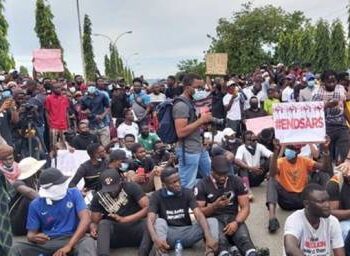Five years after security agents opened fire on peaceful Nigerian youths protesting police brutaIity under the now-defunct Special Anti-Robbery Squad (SARS), some Nigerians say little has changed.
The #EndSARS protests, which began as a youth-led movement against police violence, reached a tragic climax on October 20, 2020, when live ammunition was fired at protesters at the Lekki Toll Gate in Lagos. Several lives were reportedly lost and many others sustained injuries. The Nigerian government, then led by the late President Muhammadu Buhari, denied that any deaths occurred, a claim protesters and eyewitnesses have consistently disputed.
Despite widespread outrage and the establishment of judicial panels of inquiry across several states, some stakeholders say justice has not been served and meaningful police reform remains elusive.
Former Vice President of the Nigerian Bar Association (NBA) and member of the EndSARS National Panel, John Aikpokpo-Martins, told our reporter that the government has failed to act on the panel’s findings.

“About 70 to 80 officers were indicted for extra-judicial kiIIings, but none has been punished. Nothing has come out of the panel’s recommendations,” Martins lamented. “The only aspect that was partially implemented was compensation — and that did not even come from the federal government. It came from the National Human Rights Commission’s budget. So, effectively, the federal government never did any compensation.”
Human rights activist and lawyer Higher King also shared his concerns, noting that police misconduct, which briefly reduced after the protests, is gradually resurfacing.
“Immediately after EndSARS, police brutality reduced. But over the past year, we are beginning to see the same ugly patterns again. I don’t think the recommendations were ever taken seriously,” he said.
In Rivers State, the spokesperson for the Coalition of Civil Society Organizations, Solomon Lenu, accused both state and federal authorities of merely pretending to heed citizens’ demands. According to him, extortion and abuse by security agents remain widespread.
“The extortion and killings have not ended. Every day, Nigerians suffer one form of torture or another from those meant to protect them,” Lenu said. “Today, when you drive and see a checkpoint, your heart skips because those security agents often act against us rather than for us. The government pretended to have listened during EndSARS, but in truth, they never did.”
As Nigeria marks the fifth anniversary of the historic protest, many citizens believe the struggle for justice, accountability, and true police reform is far from over.
By Nzeuzor Jane, Port Harcourt.

























